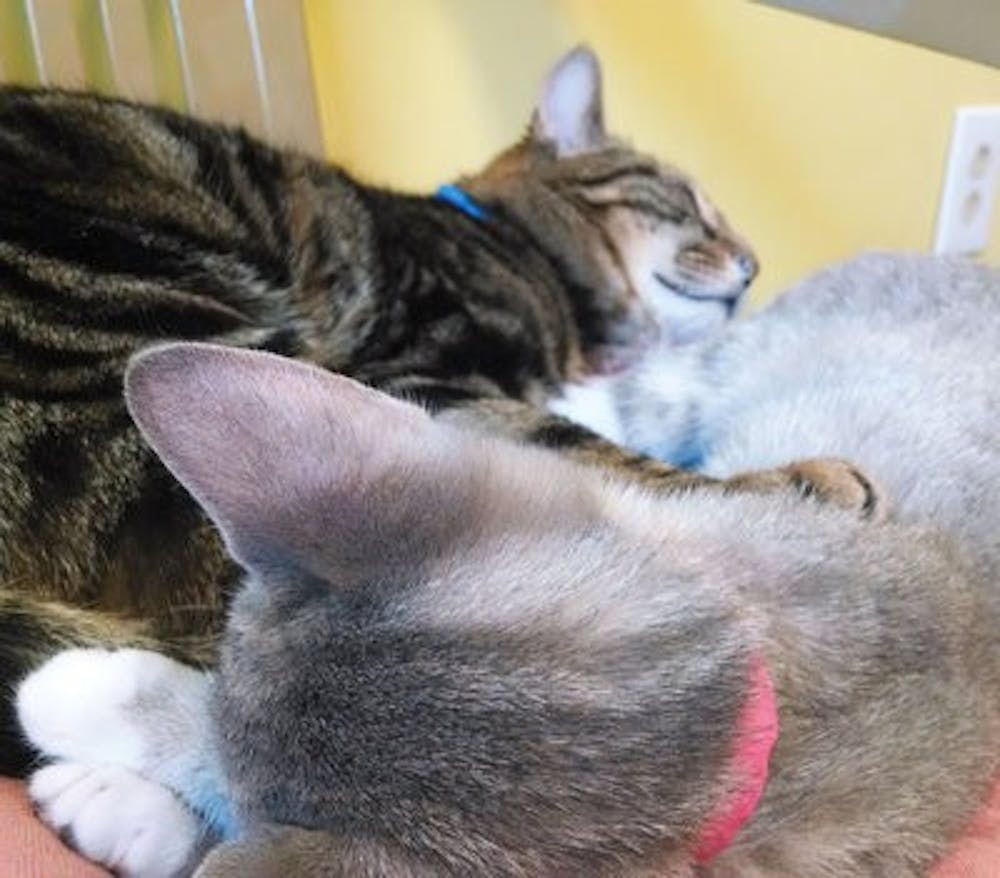The kitten was so small it could have lived in a shoebox with room to spare. Its matte black fur, which clung to its body, wound around its new owner's fingers. Its determined effort to jump several feet to the floor ended with a quick grab.
"I have a one-bedroom apartment and I wanted a companion because I was just a little bit lonely, so I thought why not get a kitten?" said Brittany Taylor as her new cat mewled loudly.
Taylor was one of a dozen people who visited the Lee County Humane Society on Aug. 16 to look at prospective pets.
Taylor said she did not know why she came to the Humane Society instead of a breeder.
"It's the most humane thing to do," Taylor said.
Paige LaPointe, animal care technician at the Humane Society and Auburn animal science graduate, recommended adopting a pet from the shelter before buying one from a breeder.
"Don't breed or buy while shelter pets die," LaPointe said. "There's no point in breeding a special breed when beautiful, loving, wonderful animals here are having to be euthanized."
She used her own dog as an example. Although it is an unidentifiable mix of breeds, LaPointe said her dog has been a loyal companion.
LaPointe said buying purebred animals supports a harmful practice.
"(Purebred animals) have so much wrong with them genetically that we can't really fix all of the problems," LaPointe said.
When breeders make new dog breeds, they mate them with close relatives who share the characteristics the breeder wants.
"When you're trying to make a purebred dog, you a lot of times are going to have to inbreed," LaPointe said. "You're going to have to breed a dog back to its parents or its siblings or its first cousins."
This process can hurt the animals, according to LaPointe.
Breeders often favor genes, which, while aesthetically appealing, carry defects.
"It's all convoluted and very interconnected," LaPointe said. "So [if] you're selecting for, say, long ears and a short nose, but at the same time you select for a long back, that causes to the dog to be more predisposed to intervertebral disk disease, ear infections and maybe allergies."
Scientists have tracked this trend. The Veterinary Journal published a study in 2009 of purebred British dogs.
It found that each of the top 50 breeds in the U.K. Kennel Club has a trait predisposing it to a physical disorder.
"Large German Shepherds are predisposed to hip displasia and degenerative malopothy, which is when the spine tissue starts degenerating," LaPointe said. "Great Danes are really prone to heart conditions or bone cancers."
LaPointe said she would prefer prospective pet owners adopt an animal instead of buying one from a breeder.
"Adopting from the Humane Society is not going to guarantee that you're going to get a generally sound animal," LaPointe said. "There's no way to guarantee that beforehand, but it does put you in a lot better position if you're adopting a mutt; you're getting, a lot of times, the best of both worlds."
Do you like this story? The Plainsman doesn't accept money from tuition or student fees, and we don't charge a subscription fee. But you can donate to support The Plainsman.




